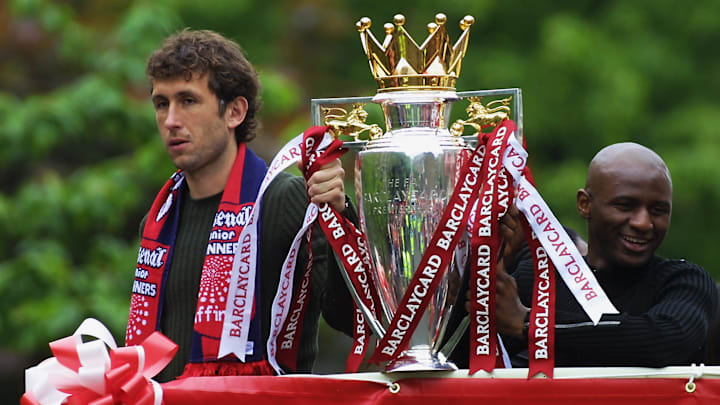For just the second time in club history, Arsenal have endured their third successive second-place finish in the league.
2024/25 was poised to be the campaign which saw Mikel Arteta's project ascend to completion. The Spaniard's team were seemingly best placed to dethrone perennial champions Manchester City. While Pep Guardiola's supreme force suffered a drastic dip, it was Arne Slot's Liverpool who stole the Cityzens' crown.
Arsenal were a distant second, with an array of factors; ranging from harsh red cards to injuries, and the lack of a ten-goal forward to the manager's over-reliance on physicality, playing a role. Plenty went against the Gunners this season, it has to be said, and perhaps they deserve credit for achieving stability. However, given our pre-season expectations, the campaign was one of disappointment.
Season five on the spin without silverware posed the question of whether Arteta's project will perpetually be associated with "nearly". His team have come close domestically, and now in Europe, but they'll only be remembered as bridesmaids until they walk down the aisle themselves.
But hey, why are we stressing? Do you need reminding of what happened the season after Arsenal completed their third Premier League campaign in a row as runners-up?
Are Arsenal destined for Premier League glory in 2025/26?

'Big spending Arsène Wenger has one last chance to beat his old rival,' a headline from The Guardian wrote the morning of Arsenal's 4-0 victory at Middlesbrough to kick-off the 2001/02 Premier League season.
The Gunners, champions in 1997/98 under their off-field revolutionary, had just endured their third-straight second-place finish to Sir Alex Ferguson's Manchester United. A ten-point deficit to the champions in 2000/01 pointed towards stagnation at Highbury, and the Red Devils were keen to take advantage of potential disquiet. Their pursuit of midfield powerhouse Patrick Vieira ultimately didn't end with the Frenchman setting a precedent for Robin van Persie and Alexis Sanchez to follow, but United's meddling had the potential to disrupt Arsenal's preparations for a make-or-break campaign.
'The Frenchman knows this is his final chance to prove his mastery of Sir Alex Ferguson in 1998 was no one-of,' Jon Brodkin wrote in that aforementioned Guardian article, with his Scottish counterpart slated to retire at the end of the season.
The club responded to their near misses by overseeing a busy summer, with almost £30m (a lot back then) spent to acquire penalty box poacher Francis Jeffers, midfield balancer Giovanni van Bronckhorst and David Seaman's successor Richard Wright. None of the above enjoyed esteemed careers with the Gunners, but the window was significant due to Sol Campbell's infamous arrival across the north London divide on a Bosman.
'After three seasons without a trophy, Highbury expects,' Brodkin concluded. The pressure was on Wenger to deliver after their spending spree and with their stellar core intact.

There were early bumps in the road, and Arsenal were as low as fifth after a 4-2 home defeat to Charlton in November, but Wenger's side were utterly relentless after Christmas – impressively dispelling the notion of potential decline. A 20-game unbeaten run, including 13 successive victories to end the season, thrust the Gunners to the Premier League title.
Key to their faliure the previous season was their inability to win away from home, but Arsenal went unbeaten on the road in 2001/02. Fittingly, the title was sealed via that Sylvain Wiltord moment at Old Trafford. Thierry Henry topped the scoring charts, while Robert Pires led the Premier League with 15 assists, but Freddie Ljungberg, for his clutch performances down the stretch, was named the division's Player of the Season.
Wenger's magicians in attack coalesced to establish a collective utopia, but they were buoyed by their newfound stability in defence aided by Campbell's arrival. With Martin Keown and Tony Adams ageing, his addition was as significant as signing a goalscorer will be for the Gunners this summer.
With Arteta set to keep his familiar core intact ahead of 2025/26 and given the expectations Arsenal will enter next season with, there are comparisons to be drawn with the summer of 2001. Wenger and his cohort of superstars found an extra gear to get over the line, can Arteta's "process" do the same?
